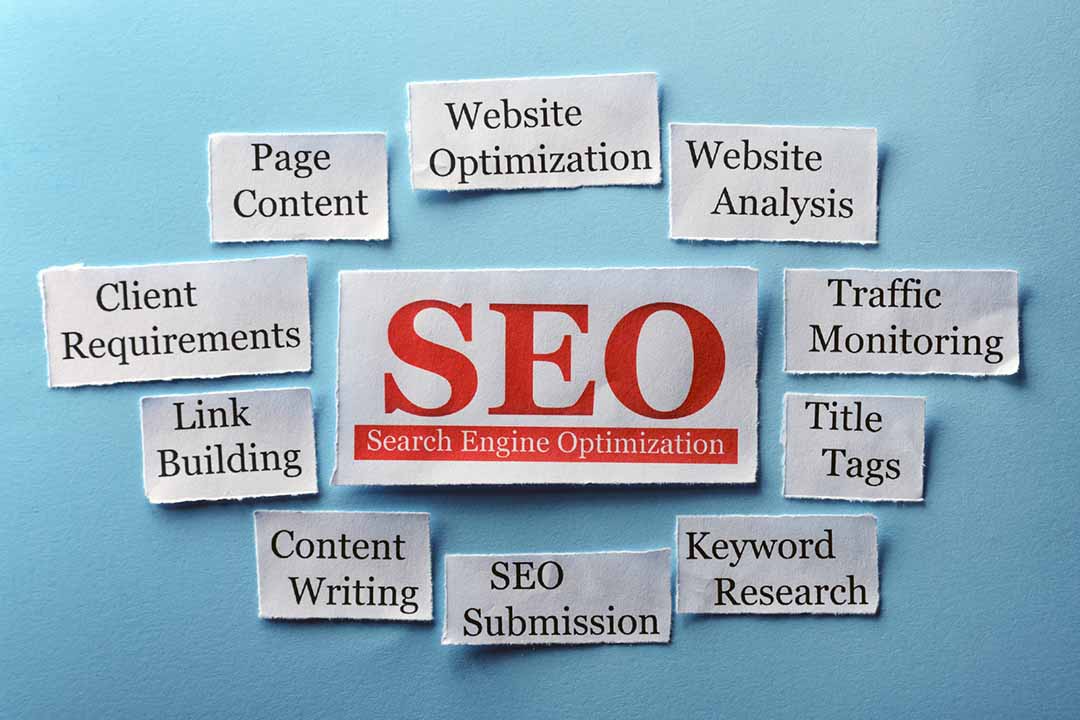Introduction to SEO Rebranding
Rebranding can be an exciting opportunity for companies looking to refresh their image, reposition themselves in the market, or merge with another business. However, while rebranding can breathe new life into a brand, it also has the potential to disrupt search engine optimisation (SEO) efforts if not managed carefully.
The impact of rebranding on SEO is often underestimated, but it can significantly affect search engine rankings, traffic, and online visibility. This blog will explore the challenges of SEO rebranding and provide practical tips to help businesses maintain strong SEO performance during the transition.
How Rebranding Can Affect Your SEO
Domain Name Changes and SEO Impacts
One of the most significant changes during a rebrand is the potential shift to a new domain name. While a new domain can signal a fresh start, it can also lead to a temporary drop in search engine rankings if not handled correctly. Switching domains can disrupt the connection between your website and the accumulated authority and trust built with search engines over time. Implementing 301 redirects from old URLs(external link) to new ones is crucial to preserving link equity and guiding search engines to the updated pages. Properly managing domain changes can help maintain the organic traffic and authority your site has earned over the years.
Changes to Brand Name and Keywords
Rebranding often involves a change in the company’s name, which can impact keyword strategies. For instance, if your old brand name had a strong association with specific keywords, those keywords may no longer align with your new branding. It becomes essential to adjust on-page content, meta descriptions, and title tags to reflect the new brand identity. Optimising the updated brand name while retaining relevant keywords is critical for maintaining visibility in search results. A thoughtful approach to keyword strategy ensures a smoother transition without losing the relevance your content has built.
Impact on Backlinks
A strong backlink profile(external link) is vital for SEO, as it helps establish your website's authority. During a rebrand, existing backlinks pointing to your old domain or brand name may become outdated. Without intervention, you could lose valuable link equity, leading to a potential drop in rankings. Reaching out to high-authority websites and partners to update backlinks with the new domain or brand name is a key part of maintaining your website’s authority. This proactive approach can help preserve the credibility your site has established within its industry.
Website Redesigns and Their Impact on SEO
Rebranding often includes a website redesign to align with the new visual identity. While a redesign can enhance user experience, it can also disrupt your website’s SEO if not done carefully. Significant changes to site structure, URL hierarchy, and page layouts can confuse search engines, leading to a drop in rankings. Maintaining a consistent site structure and keeping the most valuable URLs intact helps ensure a smooth transition for both users and search engines. Ensuring that the redesigned website remains user-friendly and SEO-optimised is key to sustaining your search engine performance.

Tips for Maintaining Strong SEO During a Rebrand
Plan Your SEO Strategy Early
Involving SEO professionals from the beginning of the rebranding process is essential to prevent any loss of traffic or visibility. A strategic SEO plan will allow you to anticipate potential issues and prepare solutions in advance, ensuring a smooth transition. Early planning can make the difference between maintaining your rankings and losing valuable organic traffic.
Use 301 Redirects Wisely
301 redirects are an essential tool in the SEO rebranding process. They ensure that users and search engines are guided from old URLs to new ones, preserving link equity and search rankings. Carefully mapping old URLs to their new counterparts helps maintain relevance and avoids 404 errors that could harm your SEO.
Audit Your Existing Site Content
Before migrating to a new domain or redesigning your site, conduct a thorough SEO audit. Identify high-performing content and pages that attract substantial traffic. Decide which content should be carried over, which should be optimised for the new brand, and which can be retired. This ensures that valuable content remains visible in search results post-rebrand.
Update External Links and Listings
During a rebrand, it’s important to update business directories, online listings, and social media profiles with your new brand name and website link. This ensures that potential customers find accurate information and that your brand remains consistent across various online platforms. It’s also a chance to reach out to partners and ask them to update links to your site.
Retain a Familiar URL Structure
Keeping a similar URL structure makes it easier for search engines to recognise and index your updated website. It also helps maintain existing rankings, making it easier for users to find your content after the rebrand. Consistency in URLs ensures a seamless user experience during the transition.
Announce Your Rebrand Publicly
Informing your audience about the rebrand through press releases, blog posts, and email campaigns is critical. It helps search engines and users understand that the new domain or brand name is a continuation of the previous one. Linking to your updated website from these announcements can also boost initial traffic and visibility.
Monitoring SEO Performance After Rebranding
Use Google Analytics and Google Search Console
Tracking your website’s performance post-rebrand is crucial for identifying any issues early on. Google Analytics and Google Search Console allow you to monitor changes in organic traffic, keyword rankings, and index coverage. These tools help you ensure that your new website is being indexed correctly and that any drops in traffic are addressed promptly.
Track Keyword Rankings
Monitor keyword positions for both the new brand name and any existing terms that remain relevant. This will help you gauge the effectiveness of your SEO strategy post-rebrand. Adjust your content strategy as needed based on any changes in keyword rankings.
Check for Broken Links and 404 Errors
Regularly audit your website for broken links and 404 errors, as these can impact user experience and SEO performance. Tools like Screaming Frog(external link) can help identify broken links, making it easier to fix them and maintain a seamless browsing experience.
Common Mistakes to Avoid in SEO Rebranding
Not Implementing Proper Redirects
Failing to set up proper 301 redirects can lead to a loss of organic traffic and search engine visibility. It’s crucial to map out redirects carefully to preserve link equity and guide search engines to new URLs.
Forgetting to Update Metadata
Neglecting to update titles, meta descriptions, and headers with the new brand name can confuse search engines and users. Ensure that all metadata reflects the updated brand identity.
Ignoring the Mobile Experience
A rebrand often involves a website redesign, and it’s essential to prioritise a mobile-first approach. Google uses mobile-first indexing, making a seamless mobile experience critical for maintaining rankings.
Underestimating the Importance of Backlinks
Backlinks play a key role in your site’s authority. Make sure to maintain relationships with high-authority sites and request updates to backlinks as needed to reflect the new domain or brand name.

Case Study: Star Group
Star Group, one of New Zealand’s leading hospitality groups, partnered with Somar Digital for a smooth SEO transition during their rebranding. With the merger of Kāpura and Joylab, maintaining SEO equity was critical. Somar Digital conducted an in-depth SEO audit and developed a 301 redirect strategy, preserving their keyword rankings and ensuring a smooth transition to the new brand.
Somar Digital completed a comprehensive SEO Audit and put together a series of recommendations and implementation steps that would carryover Kāpura and Joylab’s hard earned SEO rankings and keywords to Star Group’s domain.
The results from these recommendations included:
- Keyword Rankings: 701 keywords in the top 10 rankings
- Domain Authority: Star Group's DA score reached 41, indicating high authority. This score reflects strong backlinks, quality content, and good overall SEO practices
- Sustained SEO Performance Improvement: Maintained and improved keyword rankings, enhanced visibility, and established a strong foundation for future SEO growth
Conclusion
Planning for SEO during a rebrand is crucial for maintaining search engine visibility and traffic. With careful preparation and a strategic approach, businesses can avoid the common pitfalls of SEO rebranding.
Working with SEO experts, like Somar Digital, ensures that your rebrand doesn’t compromise your digital presence. For support with your SEO rebranding efforts, reach out to a professional team that understands the complexities of SEO migration.




